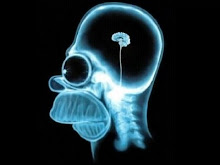I really enjoyed this book and the different tone it took from many of the other books on infertility that we are presented with, namely that it was mostly humorous and told from the perspective of a gay male couple. The author says in the chapter "Grieving Our Infertility" (page 25 in my book, but not sure if we all have the same printing) that "Heterosexual identity is all wrapped up in the ability of heterosexuals to make babies....Infertility did more than shatter their expectations; it undermined their sexual identities." If you're part of a heterosexual couple and in fertility treatment, did you feel the same way? Did you feel that you had lost your sexual identity once you started treatment, or had somehow "failed" as a partner in terms of what is expected of you as a woman? I think that Dan Savage got right to the heart of the matter with that statement. However independent or liberated you may think you are, finding out that baby making
isn't easy for you is something that goes right to the core of who you are. As a woman, I felt that I could earn an
education, a good salary and a successful career. Having a child, though, that is something that is given to me and is mine. Finding out that isn't the case changes the way you think about everything - sex, your identity as a female, and your sexuality. Even now, as I make tentative steps into the
realm of pregnancy, I feel that my view of myself as a mother is changed
because of my experience.
Dan and Terry face opposition as a gay couple trying to adopt and are able to overcome that stigma with the help of an open-minded birth mother. In some international adoptions, their chances of adopting would have been slim to none due to their sexual orientation. How do you feel about the "rules" some countries have for parents looking to adopt from their country (Examples: sexual orientation, weight, age, mental health, marital status, or income)? In the movie "parenthood"
Keanu Reaves has a line that goes something like, "They
make you take a test to
get a driver's
license, but any asshole can be a parent." Obviously this statement
doesn't take into account IF, but I think you get my point. People who are able to have their own children have them,
regardless of weight, income or mental status. I have to admit that after teaching in the inner city for 5 years and seeing some truly horrible examples of child abuse, I sometimes thought that maybe a parenting test would not be such a bad thing. (True or False A child is
not an ashtray.) I can understand why a country or agency may want to screen perspective parents for things such as mental health issues, but I have never thought that a person's sexual orientation or income level should exclude them from being a parent. From a teacher's perspective, since I am not yet a parent, what kids need is love and security.
What would you have done if given only a few hours to decide whether or not to take someone like Melissa into your life in such a permanent way? Would you have avoided the situation altogether at the expense of becoming a parent or growing your family? I don't think I would have avoided it, but it would make me pause. It's not only taking someone as a
permanent part of your family, but her circumstances made the situation even more unique. In the end, I
would like to think that I would say yes. There is no
guarantee that any child will be perfect, whether you give birth or adopt, but it is all an amazing journey.










